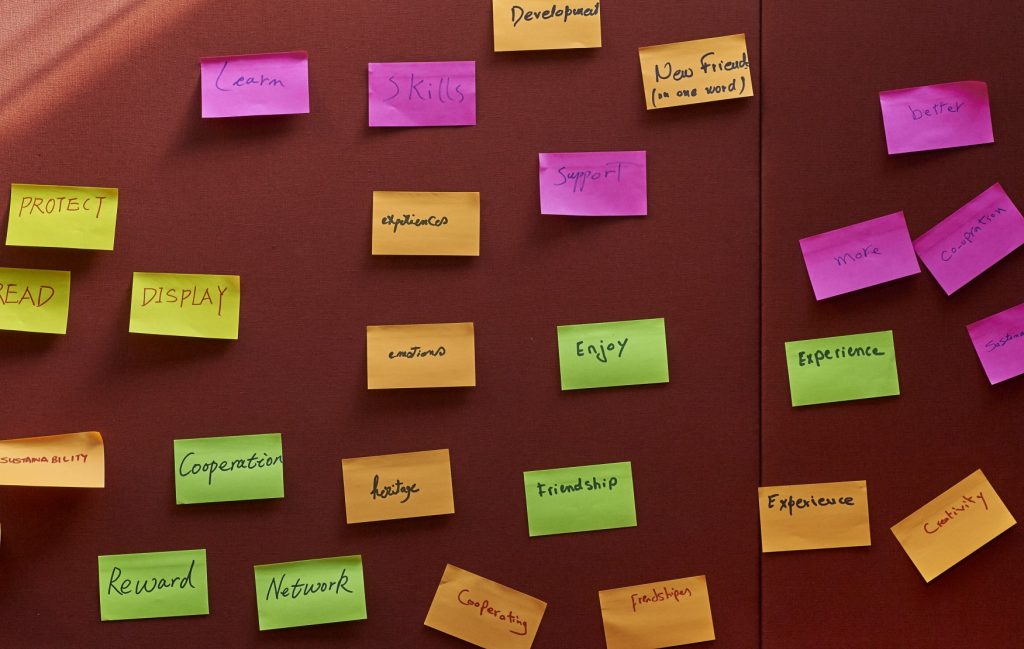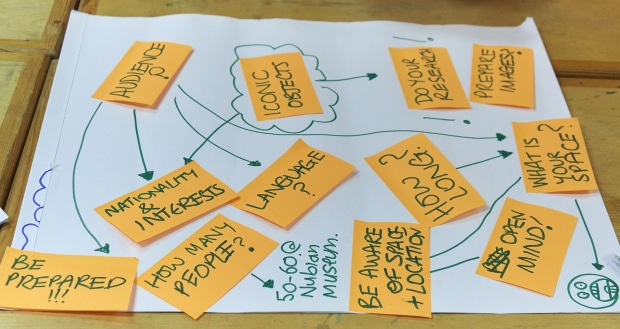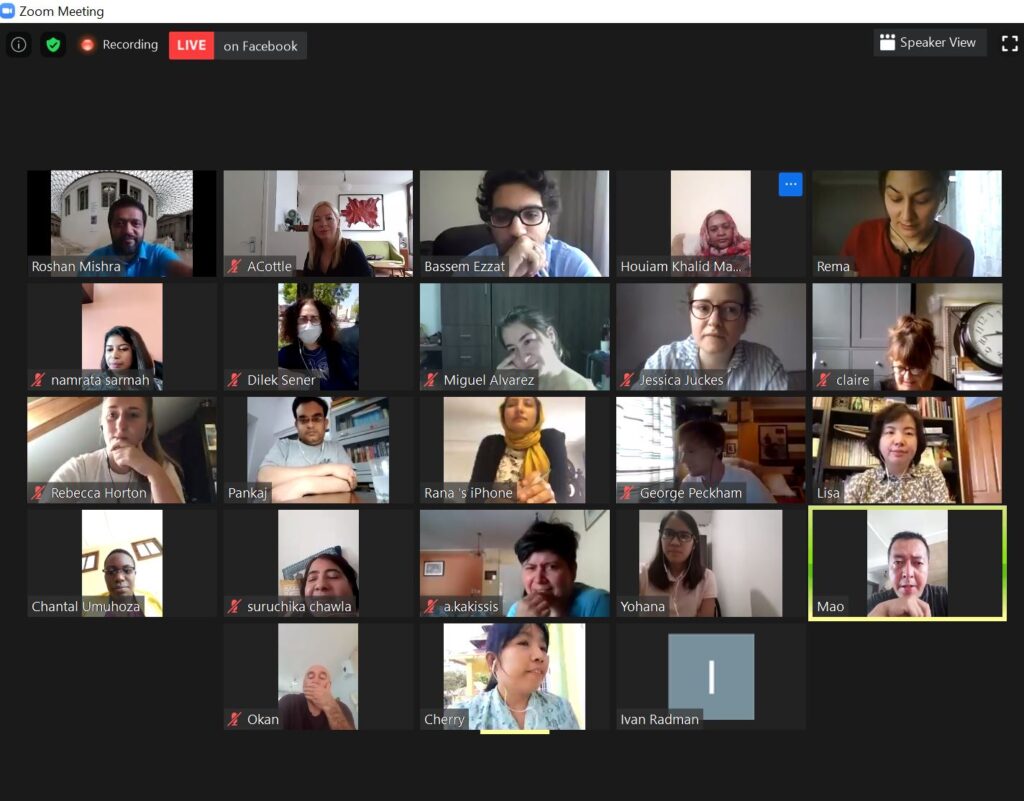In Practice: Future Museum Skills, Museums Association Conference 2020
Written by Claire Messenger, Manager, International Training Programme.
As you know, Anna, George and I attended the Museums Association online Conference, #Museums2020, from 2nd to 6th November 2020. Sadly, we were not able to be in Edinburgh in person, or welcome our ITP Fellows back to the UK, but it was a great event with many inspiring talks, tours, discussions and debates on the theme of the World Turned Upside Down: Exploring the Future of Museums.

Last week we posted a daily series of blogs from the sessions we attended but some sessions we kept aside as we wanted to share them in more detail. One of these was In Practice: Future museum skills which asked the question ‘what future skills do we need to develop and how can we develop them’?
Tamsin Russell, Workforce Development Officer at the Museums Association began the session looking at the how this year has seen huge global changes to the economy and the way we live. She asked the questions ‘what does this mean for those working in museums?’ and ‘what – as museum, heritage and culture professionals – should we do next?’ And while this session focussed on the UK culture and heritage sector, there are some useful tips, hints and ways forward I’d like to share with our ITP network.
So this post will aim to give you (1) an understanding of what the sector needs, what it is looking for in a workforce; (2) ways to understand your strengths; (3) tools and techniques to rate your development options and learning styles and (4) ideas for the next steps.
Key definitions for the session were:
Expertise = knowledge + skills + experience.
Skills gap – this is at an individual level and will highlight the gaps in your current skills that you can plan to fill.
Skills shortage – this is at sector level and will demonstrate what skills and experience the sector is looking for.
T-shape – this is a person that can combine a specialism with a broad range of other generic skills and knowledge making them more employable.
Sector skills shortage
In 2016 Arts Council England produced a report called Character Matters: Attitudes, behaviours and skills in the UK Museum Workforce. The key findings of the research looked at some of the widely acknowledged challenges and issues facing the sector and what attitudes, behaviours and skills would be needed for the museum workforce of the future. Knowing what the sector needs will help you assess your current strengths and plan for how you can further develop your skills and experiences. Tamsin took the findings from this report and up-dated them, to reflect the current COVID-19 challenges, through discussions with sector colleagues.

The key skills noted were leadership; management; business and digital and within those skills, the following was highlighted:
Leadership – advocacy; climate change; diversity & inclusion; ethical practice; risk management and decision-making.
Management – coaching & mentoring; remote management; difficult conversations; managing change; knowledge management and managing & commissioning.
Business – income generation; fundraising; marketing; partnership working; entrepreneur skills and stakeholder management.
Digital – literacy – internal and developing others; engagement – webinars, tours, streaming, interpretation, exhibitions; content creation – films, editing, podcasts, digital first, e-learning,
Collections – disposals; reviews; loans; monetisation; emergency planning; collections care.
Audiences – communication; blended learning; health & safety; community engagement; external benchmarking; managing expectations.
The survey also looked at key personal qualities they want their workforce to have:
- Optimism
- Motivation
- Self-efficacy
- Persistence
- Curiosity
- Creativity
- Ability and willingness to learn and collaborate
- Resilience; risk-orientation.
So, what do we need to be to make ourselves more employable?
- Flexible.
- Resilient.
- Confident.
- Able to work from home.
- Able to work in a team.
What should we do with this information? Create a strengths analysis.
Rating – how well do you meet the key skills and personal qualities above? Not met; partially met; met; fully met; outstandingly met.
Category – look at the key skill and personal qualities you have and assess if you have knowledge of them OR demonstratable skills in them (ie. you’ve been on a training course) OR first-hand experience of them.
Learning styles – if you are going to improve your skill set, consider how best you learn. Are you a theorist, an activist, a reflector? Do you learn in an auditory and/or visual way?
Ways to learn.
Watching Films – TED talks, Royal Society of Arts animations; MuseumNext. Role models – leaders; movers & shakers. Experts – shadowing others; shadowing visitors; shadowing communities. Practice – procedure and culture – from paper to place; from rhetoric to reality. Role models – leaders; movers & shakers. Experts – shadowing others; shadowing visitors; shadowing communities. Practice – procedure and culture – from paper to place; from rhetoric to reality.
Doing Visiting – museums; websites. Reading – reports; standards; opinions; reviews. Participating – consultations; committees. Mentoring and coaching – Who do you admire in the workplace? Would they be prepared to act as a mentor or coach for you?
Connecting Digitally – Twitter; Instagram; Facebook; LinkedIn; subscribing to newsletters and mailouts. Face to face – events; conferences; workshops (online or socially distanced). Join a group – subject specialist networks; professional networks; museums associations; Action Learning Sets (structured method enabling small groups to address complicated issues by meeting regularly and working collectively). Create your cheerleading team – Who can help you develop??

Reflecting In advance – How are you going to proceed? What has worked in the past? Afterwards – How did it go? What worked? What would you do differently? What did they do? Recording – A route map for the future.
What next? What time do you have? How much money do you have? Is there any urgency? Is there a critical path? How best do you learn?
Creating a professional development plan – this is the final, quite straightforward stage. Ask yourself the questions below and consider what routes you will take.

I hope this blog post has given you some insights and ways to move forward with your own personal development. Good luck!!!
